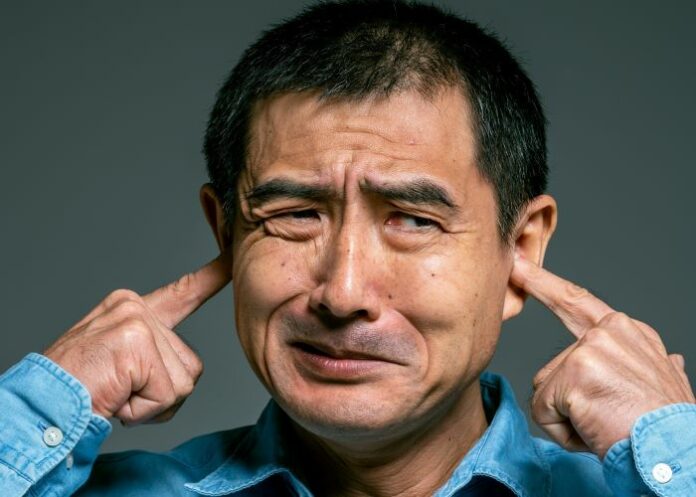Tinnitus, that ringing, buzzing, whistling, or hissing noise in one or both ears when no external source of the sound is present, and suffered by some 740m people worldwide, in varying severity, could be helped by a cellphone app that combines white noise, active game-based therapy and counselling to “rewire” the brain to provide relief, suggests recent research.
In a randomised controlled trial, results at 12 weeks showed patients with tinnitus reported clinically meaningful reductions in ratings of annoyance, inability to ignore, unpleasantness, and loudness after using a digital polytherapeutic app prototype that focuses on relief, relaxation, and attention-focused retraining.
In addition, their improvements were significantly greater than for the control group, which received a common white noise app.
Researchers called the results "promising” for a condition that has no cure and few successful treatments.
“What this therapy does is essentially rewire the brain in a way that de-emphasises the sound of the tinnitus to a background noise that has no meaning or relevance to the listener,” said lead author Grant Searchfield, PhD, associate professor of audiology at the University of Auckland, New Zealand. The findings were published online on 5 August in Frontiers in Neurology.
Worldwide problem
More than 740m adults worldwide (nearly 15% of the population) have experienced at least one symptom of tinnitus – and about 120m are severely affected.
Often caused by damage to the auditory system, tinnitus can also be a symptom of a wide range of medical conditions and has been identified as a side effect of COVID-19 vaccination.
In its most severe form, which is associated with hearing loss, tinnitus can also affect a patient's mental, emotional and social health.
For the current study, participants with tinnitus were randomly assigned to a popular app that uses white noise (control group, n = 30) or to the UpSilent app (n = 31).
The UpSilent group received a smartphone app, Bluetooth bone conduction headphones, a Bluetooth neck pillow speaker for sleep, and written counselling materials.
Participants in the control group received a widely available app called “White Noise"” and in-ear wired headphones.
‘Quicker and more effective’
Both groups reported reductions in ratings of annoyance, ability to ignore, unpleasantness, and loudness at 12 weeks.
But significantly more of the UpSilent group reported clinically meaningful improvement compared with the control group (65% vs 43%, respectively; P = .049).
“Earlier trials have found white noise, goal-based counselling, goal-oriented games, and other technology-based therapies are effective for some people some of the time,” Searchfield said.
“This is quicker and more effective, taking 12 weeks rather than 12 months for more individuals to gain some control,” he added.
The investigators say the study was not designed to determine which of the app’s functions of passive listening, active listening, or counselling contributed to symptom improvement.
The next step will be to refine the prototype and proceed to larger local and international trials with a view toward approval by the US Food and Drug Administration, they report.
The researchers hope the app will be clinically available in about six months.
Study details
A randomised single-blind controlled trial of a prototype digital polytherapeutic for tinnitus
Grant Searchfield and Philip Sanders.
Published in Frontiers in Neurology on 5 August 2022
Abstract
Objective
This randomised single-blind controlled trial tested the hypothesis that a prototype digital therapeutic developed to provide goal-based counselling with personalised passive and active game-based sound therapy would provide superior tinnitus outcomes, and similar usability, to a popular passive sound therapy app over a 12 week trial period.
Methods
The digital therapeutic consisted of an app for iPhone or Android smartphone, Bluetooth bone conduction headphones, neck pillow speaker, and a cloud-based clinician dashboard to enable messaging and app personalisation. The control app was a popular self-help passive sound therapy app called White Noise Lite (WN). The primary outcome measure was clinically meaningful change in Tinnitus Functional Index (TFI) between baseline and 12 weeks of therapy. Secondary tinnitus measures were the TFI total score and subscales across sessions, rating scales and the Client Oriented Scale of Improvement in Tinnitus (COSIT). Usability of the US and WN interventions were assessed using the System Usability Scale (SUS) and the mHealth App Usability Questionnaire (MAUQ). Ninety-eight participants who were smartphone app users and had chronic moderate-severe tinnitus (>6 months, TFI score > 40) were enrolled and were randomly allocated to one of the intervention groups. Thirty-one participants in the USL group and 30 in the WN group completed 12 weeks of trial.
Results
Mean changes in TFI for the USL group at 6 (16.36, SD 17.96) and 12 weeks (17.83 points, SD 19.87) were clinically meaningful (>13 points reduction), the mean change in WN scores were not clinically meaningful (6 weeks 10.77, SD 18.53; 12 weeks 10.12 points, SD 21.36). A statistically higher proportion of USL participants achieved meaningful TFI change at 6 weeks (55%) and 12 weeks (65%) than the WN group at 6 weeks (33%) and 12 weeks (43%). Mean TFI, rating and COSIT scores favoured the US group but were not statistically different from WN. Usability measures were similar for both groups.
Conclusions
The USL group demonstrated a higher proportion of responders than the WN group. The usability of the USL therapeutic was similar to the established WN app. The digital polytherapeutic demonstrated significant benefit for tinnitus reduction supporting further development.
Medscape article – Digital Therapy May ‘Rewire’ the Brain to Improve Tinnitus (Open access)
See more from MedicalBrief archives:
COVID-19’s link with audio-vestibular problems, including tinnitus — Systematic review
‘Significant’ success with new treatment for tinnitus
Evaluating a cognitive training programme on tinnitus

